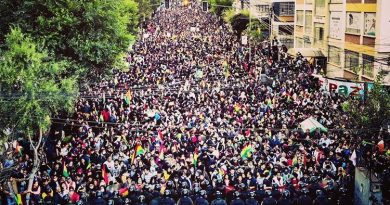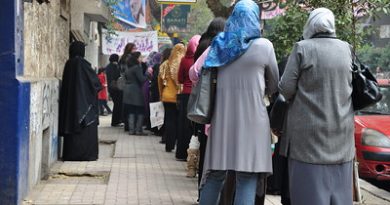Venezuelan Opposition Disputes Election Results
Taylor Cain
Staff Writer
Venezuela’s opposition party, Mesa de la Unidad Democratica and its supporters refused to accept the results of the October 15 regional elections. The ruling Socialist Party won 17 of the 23 governorships, resulting in opposition-led protests across the country despite the ruling party losing three seats.
Three of Venezuela’s opposition parties: Justice First, Popular Will and Democratic Action, announced on Monday they will boycott municipal elections in December reports Al Jazeera. This is to protest an election system they say is biased, and instead will focus on demanding reforms to the election board to prepare for next year’s presidential poll.
President Nicolas Maduro said the elections were “a success for Venezuela and the revolutionary democracy, for the social democracy.”
Gerardo Blyde, the campaign head for the opposition coalition called for protests and a complete electoral audit of all 23 districts on October 16. Maduro approved the audit with confidence in his party, Al Jazeera reports.
MUD accused the National Electoral Council of producing confusing ballots and strategically moving polling places to aid ruling party candidates, CNN reports. Some voters were uncertain about the location of their polling stations and waited in long lines to vote. The government relocated 200 polling stations for security reasons, Al Jazeera reports, but the opposing party claims the relocations unfavorably occurred in their regional strongholds.
“Maybe they don’t want my vote” one voter told CNN after her polling location changed, “but we have to vote. We have to elect…our governors” she stated. This voter is one of many who saw firsthand the difficulties of voting for this election. Many others also share that feeling of necessity when it comes to voting for their governors among other officials.
The US Department of State condemned the Council for “the fairness of the electoral process,” and the Council criticized the statement, calling it an “aggression perpetrated against our sovereignty”.
Maduro responded to fraud accusations on October 17, claiming Venezuela’s electoral process is “the most audited and secure in the world…nobody can commit fraud”.
In the district of Zulia, opposition candidate, Juan Pablo Guanipa, won the race, The Washington Post reports, but the constitutional assembly blocked him from being sworn in. Guanipa did not comply with Maduro’s order for governor-elects to take the oath in front of the ruling party-backed constitutional assembly. MUD supported Guanipa’s decision not to attend the ceremony, but the four other governor-elects from the party attended the ceremony. The new date for Zulia’s gubernatorial elections has not been determined.
The pro-government constitutional assembly was created in July, The Washington Post reports, and has been called a fraudulent institution by members of the international community. For instance, American President, Donald Trump, called Venezuela a dictatorship and added it to the travel ban, specifically prohibiting governmental leaders and their families from traveling to the United States. This travel ban is only active for seven other countries.
While is to be seen if the opposition parties’ attempts to bring about reforms to the electoral board will succeed, there is a lot of pressure on Maduro to change the process in some way.



